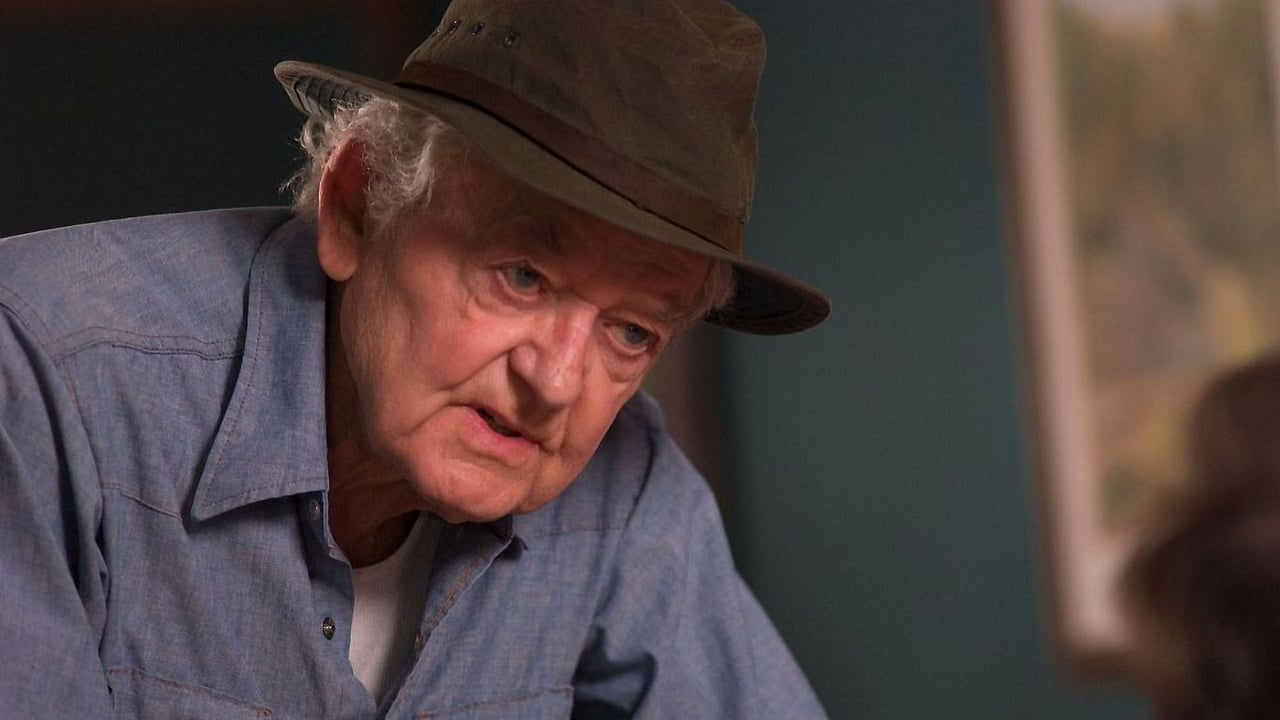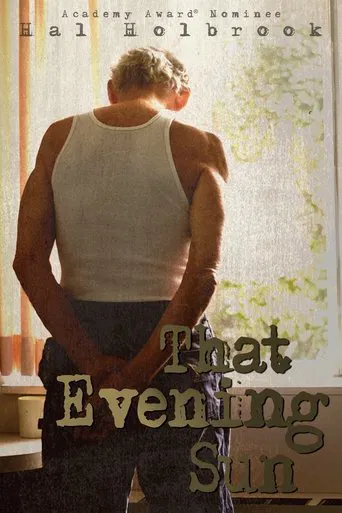CommentsXp
Best movie ever!
Clarissa Mora
The tone of this movie is interesting -- the stakes are both dramatic and high, but it's balanced with a lot of fun, tongue and cheek dialogue.
Payno
I think this is a new genre that they're all sort of working their way through it and haven't got all the kinks worked out yet but it's a genre that works for me.
SnoopyStyle
Grumpy old man Abner Meecham (Hal Holbrook) walks away from his retirement living. He returns to his Tennesse farm after 3 months to find Lonzo Choat (Ray McKinnon) occupying it. His son Paul (Walton Goggins) had rented it with an option to sell. Abner is unwilling to leave and starts living in the adjacent slave cabin. Lonzo is a drunk. He beats his daughter Pamela (Mia Wasikowska) and wife Ludie (Carrie Preston) after Pamela comes home with a boy. Thurl Chessor (Barry Corbin) is a neighbor. These are great performances of compelling characters. Holbrook shows a terrifically pained bitter person. Everybody delivers in this. There is quiet tension throughout.
vegfemnat
The film is brilliant and a must see as other reviewers have already mentioned. The acting is masterclass and together with the brilliantly written dialogue paints the characters and their interactions in the fewest strokes possible. No wasted dialogues that bring nothing new to the story. I will not waste time mentioning how good Hal Holbrook is in the movie since every other reviewer has already done that.Instead I have to mention Ray McKinnon's performance as the troubled self-destructive alcoholic who s struggling to straighten himself out for the sake of his family. His portrayal both scares for being the dormant maniac that is at the edge of being unleashed at every stage and at the same time saddens for him being unable to reform himself due to a lot of external factors - him being unable to find a steady income , an old dude trying to snatch his family's home from him, his daughter dating a guy's son whom he detests for supposedly having stolen his grandfather's watch. The low lit sequences of him sitting in front of the television knee deep in self loathing and the weight of past regrets hanging over him is both scary and sad at the same time. At one point he tells his wife "People just can't understand that a guy can change". Ray McKinnon's Lonzo Choat is unforgettable.The only issue I had with the movie was with its messy third act. I mean I can understand the story treading a little offbeat path in its final stage to bring about a certain sense of realism and a non- cliché end. But it was too off putting for me. It was abrupt and doesn't give a sense of closure. I had already invested so much time in the Choat family and was at least hoping to see where things go for them. But the movie just completely disregards their plight at the end showing us nothing of them whatsoever. My heart was yearning to know what happens to them afterwards.But still a definite masterpiece with some brilliant shots and outstanding character studies. I'll definitely watch this a second time.
j-lacerra
That Evening Sun begins as many geezer-escapes-from-nursing-home movies, with 80-year old Abner Meecham (Hal Holbrook) packing his bag and heading back to his old farm. Once there, he finds that his lawyer son has rented the place, inevitably, to a family he loathes and holds in low regard, the Choats. Even though the Choats have legal right to be there (a valid lease), Abner tries to run them off, and, failing that, he stays on in a worker's shack on the property to harass them. He does sort of befriend the teen Choat daughter, and actually saves her and her mother from a beating with a garden hose by papa Choat.Holbrook is good, as always, but Abner is a nasty old cuss who seems to thrive on being mean. In the course of the movie, we learn that not only is Abner not entirely a good guy, but Choat is not entirely a bad guy.The problems here are several: Abner is relentlessly mean and we cannot grow to like him, his scenes with teen Pamela Choat are few and brief and the relationship goes nowhere, Dixie Carter's appearances in flashbacks as Abner's dead wife afford her no lines, and Abner's employing a noisy dog to irritate Choat must end in the animals death. For some reason, viewers are more outraged by the death of a dog than by that of humans, and this scene is played directly to that idiosyncrasy.The 'story' ends with Abner no better off than at the start, the Choats no better off - in other words it was all for naught. No resolution, no real story, irritating characters, missed opportunities, very bad ending. One to miss.
bandw
This story of Abner Meecham, an 80-something man who walks out of his retirement home to return to his old farm, only to find other people living there, was to me more of a thriller than most movies tagged as that. The conflicts that develop between Meecham and the farm-dweller Choats (husband, wife, and teenage daughter) kept me in a state of tension throughout most of the movie.You think that this is going to be a story about Abner, a lovable curmudgeon who fights the good fight to reclaim his property from the unlikable Lonzo Choat. But things don't quite go in that direction. For one thing Meecham's son Paul, a lawyer with power of attorney, has given the Choats a 90 day lease with an option to buy, so the Choats have legal right to be on the land. But Meecham is not about to let that stand. Choat and Meecham have many more shades of gray in their personalities than good versus bad. We see a dark side of Choat in a beating he deals his daughter with a garden hose (which is truly a horrible scene), but as he gently coils the hose for storage the next day we see regret and self loathing in his every movement. Meecham doesn't start the negotiations off well by calling Choat white trash and saying that he is a lazy good-for-nothing. But Choat's wife Ludie lands a pretty good blow on Meecham when she asks him if it doesn't get tired being such a bitter, lonely old man. The back-and-forth ever-escalating battle that embroils the Choats, Meecham, and Paul, exposes their personalities in a way that kept my interest.I think the basic theme touched on is knowing when to give up. Is it realistic for Meecham to think he can resume his life alone on the farm? Does Choat really have a chance of making a go of it on the farm? Should Paul give in to his father's demands, or should Meecham listen to Paul's reasoned arguments? The film ultimately resolves these questions, but does not answer them.The filming in rural Tennessee adds a touch of realism to the proceedings.Holbrook, at age 84, continues to amaze. I can't think of any other actor his age who could pull this off--he is on screen for most of the scenes. I found the interview with him on the DVD well worth watching.

